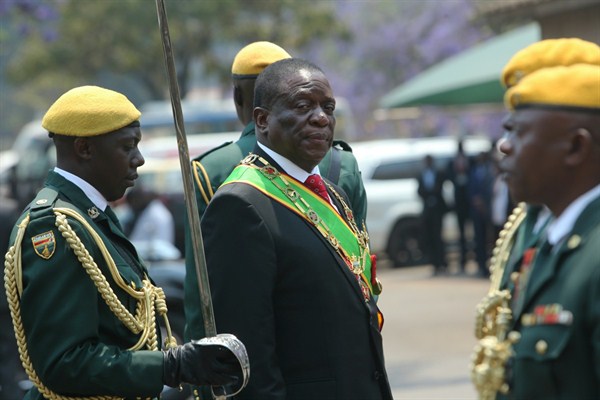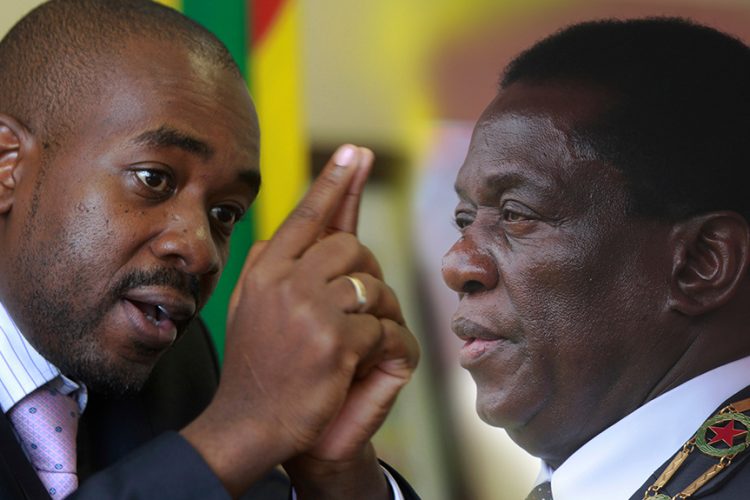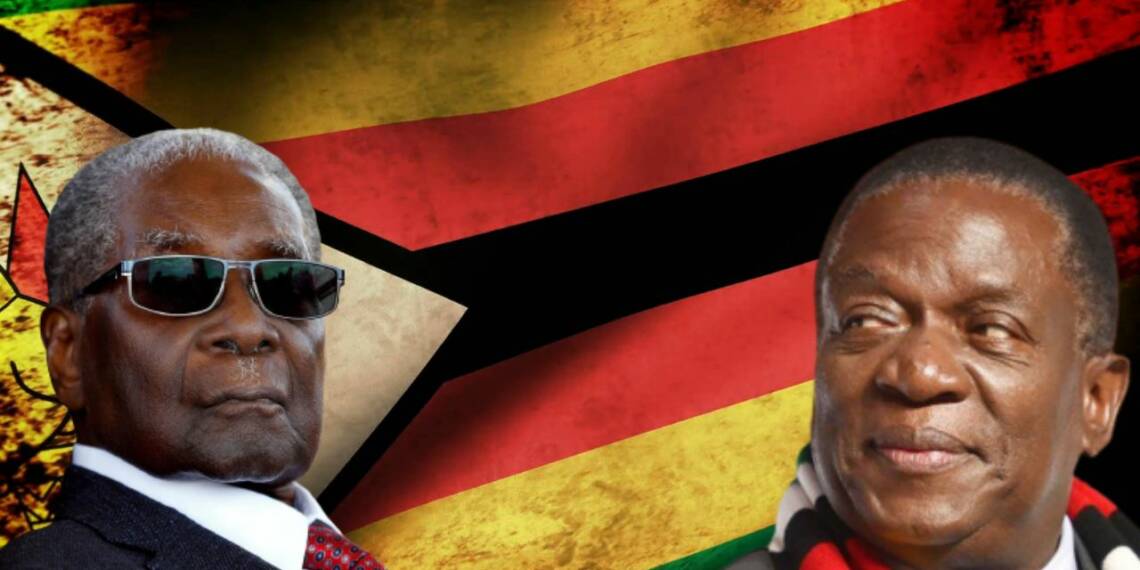Zimbabwe is a landlocked country in Southern Africa. Harare is the capital and the largest city of Zimbabwe. Like most other African countries, Zimbabwe’s struggle for democracy has been long and ongoing. The country has had a long history of violence in the context of elections and as the country prepares for the general elections this year, violence has erupted once again raising fears of repression. Despite the challenges, there are some bright spots that is helping Zimbabwe to revive its position in the African continent.
Political Background
Zimbabwe gained independence from Britain in 1980. Veteran President Robert Mugabe dominated the country’s political scene for 37-long years since after independence till 2017.

In Zimbabwe, the President is the head of the state and government. The country has been ruled by the Zimbabwe African National Union – Patriotic Front (ZANU–PF) since independence in 1980, under the leadership of Robert Mugabe until 2017, when he was removed as President and party leader and was replaced by Emmerson Mnangagwa. Similarly, Mnangagwa has also secured his party’s backing to be its candidate in the 2023 elections.
Read More: Zimbabwe fast-tracks de-dollarization of its mineral sector
Economic scenario
Zimbabwe’s economy began experiencing a decline in the 1990s. The Mugabe administration’s “land reform” which was aimed at the hastening the slow reallocation of farmland from the white minority to Black Zimbabweans in the 1990s is often cited as a major reason for economic decline. Moreover, Mugabe’s decision to intervene in the Democratic Republic of Congo’s civil war costed the country hundreds of millions of dollars and led to suspension of international economic aid for Zimbabwe.

Further, Western sanctions have adversely affected the country’s economy. Since the 1990s, soaring inflation, debt distress, poverty, unemployment, etc. have been the major issues of its economy. Zimbabwe has lost about $100 billion in aid and grants from financial institutions such as the African Development Bank due to West’s sanctions.
The economy of Zimbabwe was already in recession, contracting by 6% in 2019, as per a report. After the pandemic, the situation became even worse. The pandemic along with the continued drought, led to a 10 percent contraction in real GDP in 2020.
Read More: To hell with America’s sanctions, Zimbabwe launched back-to-back satellite
Zimbabwe: The real Democracy?
As mentioned above, Zimbabwe has struggled for democracy. The ruling ZANU-PF, has been in charge since Zimbabwe gained independence from Great Britain in 1980. The current president Emmerson Mnangagwa, came to power in 2017, after Robert Mugabe ruled the country for 37 years.
There have been several instances wherein the ruling ZANU-PF has been charged with utilizing violence and intimidation to terrorize opposition candidates. In this regard, Mnangagwa has also been accused of exploiting the judiciary to suppress dissent.

When Robert Mugabe was militarily removed from office in November 2017, it opened the door for the country’s first real leadership transition since 1980. Many hoped that Zimbabwe would finally find its way from dictatorship to democracy. To this point, in the July 2018 elections, Zimbabweans waited in long queue to choose between Mugabe’s replacement, the 75-year-old acting President Emmerson Mnangagwa, and a young lawyer named Nelson Chamisa.
Read More: We are giving you a little Glimpse of Mugabe’s Regime in Zimbabwe. It is Terrifying
However when the election results were announced, Chamisa’s party alleged fraud and his supporters came on the streets of Harare to protest against the state authorities. As a retaliation, the security forces fired guns at the people thereby killing several unarmed citizens.

Now, as the country heads for election, there are once again fears of repression. As per a report, Zimbabwean police recently fired teargas at an opposition party gathering in Harare and arrested 25 of its members. The arrests have come after a wave of politically motivated violence against opposition supporters in rural Zimbabwe. The Citizens Coalition for Change (CCC) is led by Nelson Chamisa is one of the biggest competitors for ZANU-PF’s President Emmerson Mnangagwa and this is the second time that the two will be contesting against each other. To add further, the CCC enjoys massive urban support and is seen as a threat to ZANU-PF’s 43-year-old stranglehold on power.
Read More: Zimbabwe is one step closer to launch Africa’s own ‘green revolution’
Moving forward
Though Zimbabwe’s economy has been struggling for two decades due to Western sanctions. However, now the country despite facing all odds, is aiming higher and investing in various sectors such as space program to utilize it for the country’s well-being. Thus, it will not be wrong to say that the country is finally moving in the right direction and that the upcoming election will decide the fate for Zimbabwe as well as its position in the African continent.
https://www.youtube.com/watch?v=_sLSdUamAhA








